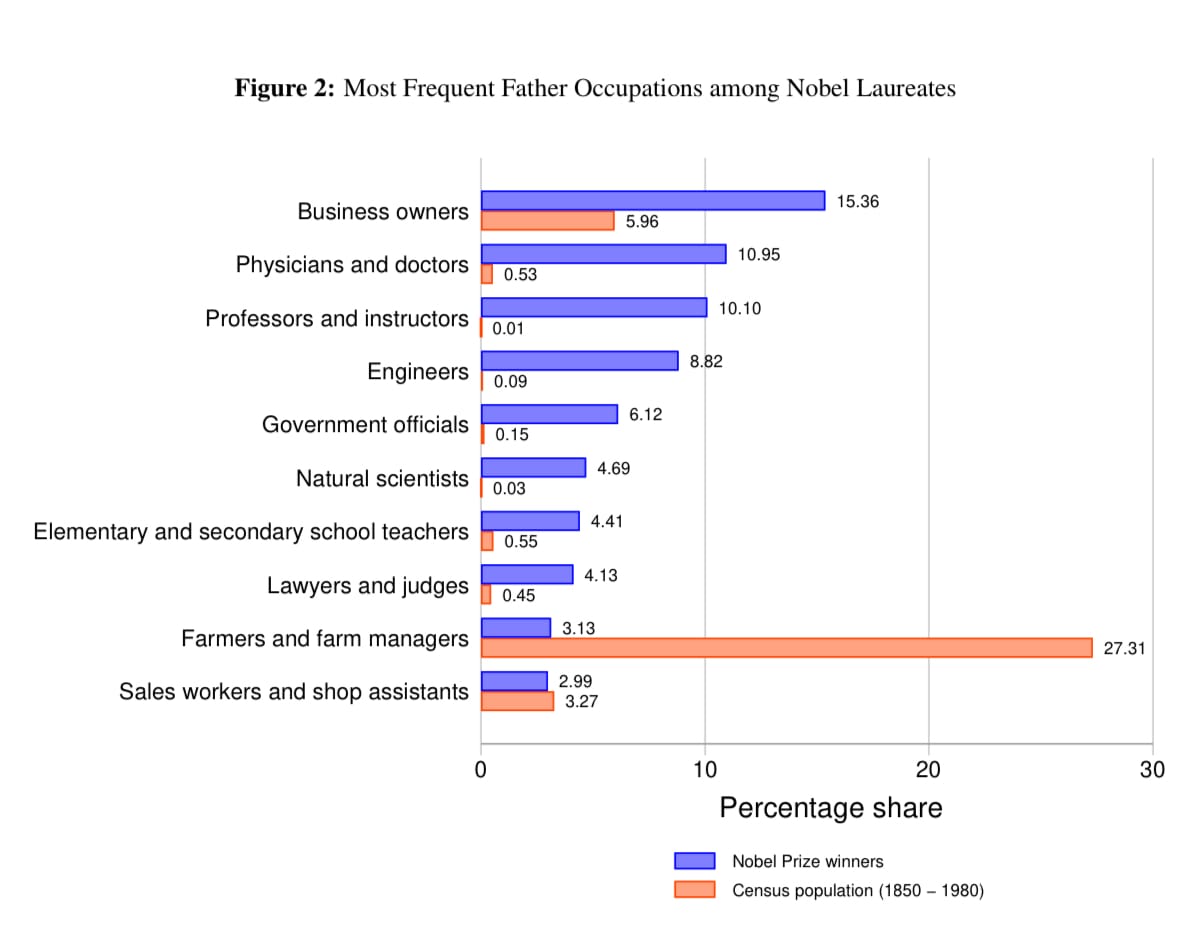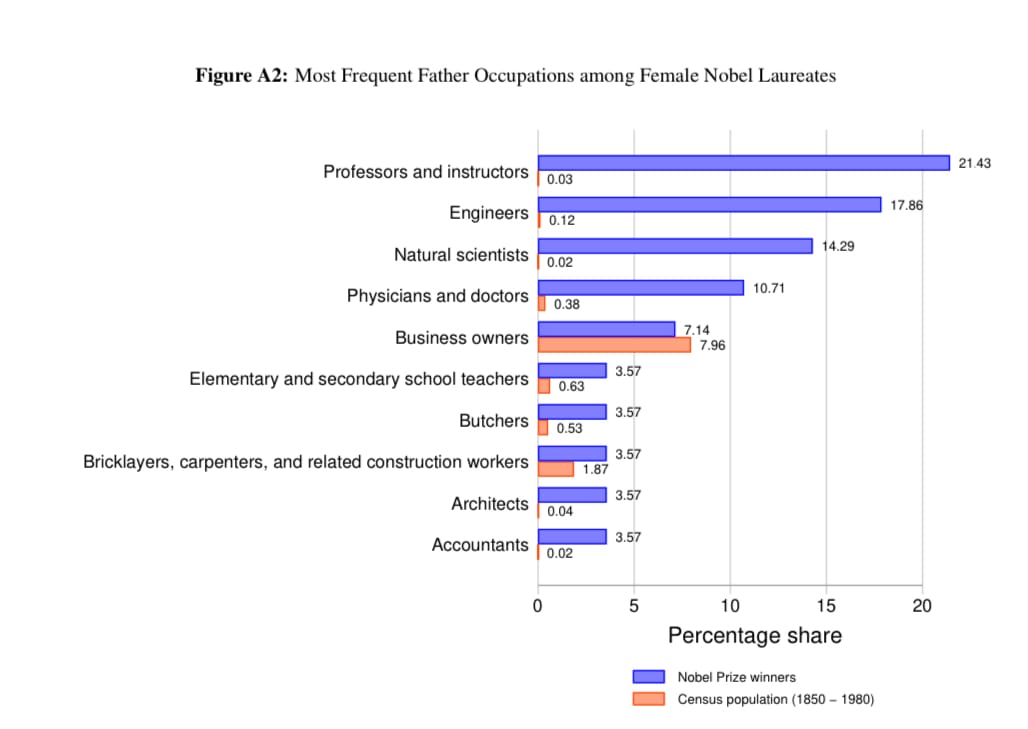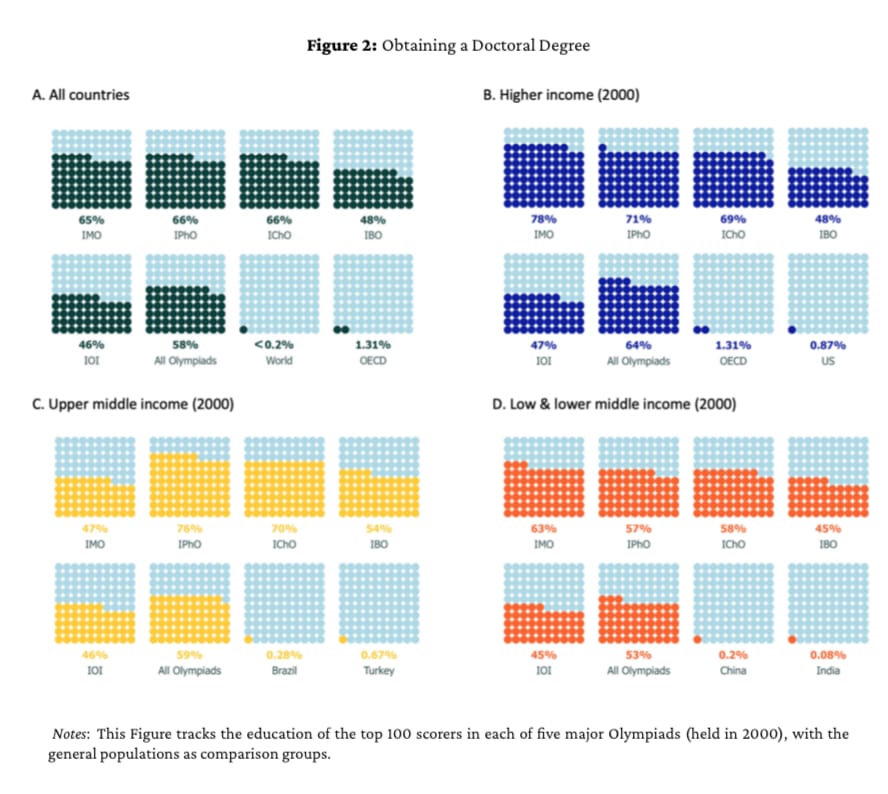The State of Education: Opportunity, Responsibility, and Privilege
Good morning ☕ readers! Let’s dive into some quick notes on education and what shapes high achievers in academia. Take a moment to reflect on how your own formal (and informal) education has shaped your journey.
Education is often described as the great equalizer, a pathway to opportunity and self-improvement. Yet, research shows that access to education is profoundly shaped by economics, family background, and systemic privilege. Studies on Nobel laureates and public education underscore the persistent inequalities in education and the barriers that prevent many from realizing their potential. However, alongside these systemic challenges lies the personal responsibility of individuals to make the most of the opportunities available to them. This dual focus—on structural change and individual accountability—defines the state of education and its potential to empower lives.
The Role of Economics in Shaping Education
Economic Advantage and Access
Studies reveal that Nobel laureates overwhelmingly come from elite families, with fathers in the highest percentiles of income and education.

Wealth provides access to resources, elite institutions, and social capital that amplify opportunities. Similarly, families in higher-income brackets can invest in private schools, tutoring, and extracurricular programs that create advantages others cannot afford.


These advantages underscore a harsh reality: talent alone is often insufficient without access to opportunity.
Read more here: Access to Opportunity in the Sciences: Evidence from Nobel Laureates, https://paulnovosad.com/pdf/nobel-prizes.pdf
Global and Local Inequities
Globally, disparities in education are even starker. Talented individuals in low-income countries frequently lack the infrastructure, mentorship, or funding needed to pursue education at a high level. In contrast, regions with higher upward mobility and equitable access produce more Nobel laureates and innovators. This highlights the critical role that public education, scholarships, and community investment play in fostering talent.
The Importance of Access to Young Talent
Finding and nurturing young talent is critical to maximizing societal potential. Studies of International Science Olympiads (ISOs) show that participants—often identified early—are disproportionately likely to achieve significant breakthroughs in STEM fields, including major scientific awards. However, access to these programs is limited by economic and regional barriers. For instance, children from low-income families or underserved communities often lack the preparatory resources, mentorship, or even awareness of these opportunities. The loss of potential among these “hidden geniuses” represents a significant cost to innovation and progress. Creating pathways to identify and support young talent—through equitable access to education, competitive programs, and STEM initiatives—can unlock the intellectual power of individuals who might otherwise remain overlooked. We must ask whether it was the access these children had to early Olympiads that paved the way for their esteemed academic careers, or if their success was innate—evidence that they were simply “built different.”

Read more here: Finding Young Einsteins: Olympiads and STEM Talent Discovery, https://conference.nber.org/conf_papers/f210802.pdf
The Importance of Personal Responsibility
While systemic barriers undoubtedly affect access to education, personal responsibility remains essential. Individuals, regardless of their circumstances, have the power to make choices that shape their outcomes.
1. Maximizing Opportunities:
Even within limited circumstances, individuals can take initiative—whether through self-study, seeking mentorship, or participating in available programs. Many renowned scientists and innovators rose from humble beginnings through persistence and resourcefulness.
2. Cultivating Resilience:
Challenges are inevitable, but how individuals respond to adversity often defines their trajectory. A growth mindset, a willingness to learn, and the ability to adapt can bridge gaps that privilege alone cannot.
3. Leveraging Education as a Tool:
Education, formal or informal, is a powerful tool for empowerment. From free online resources to community programs, opportunities for learning often exist even in constrained environments. Recognizing and seizing these opportunities is key to personal growth.
What Does It Mean to Be “Smart”?
“Smartness” is not solely about IQ, academic credentials, or professional success. It is a combination of curiosity, effort, and the ability to apply knowledge effectively. Importantly, being smart also means recognizing the privileges and challenges that shape one’s journey.
A Balanced Perspective: Achievement is often the result of both individual effort and external factors, such as family support or economic stability. Acknowledging this balance helps us stay grounded and empathetic.
A Call for Reflection: How much of what we achieve is due to our environment rather than intrinsic ability? What can we do to ensure others have the same opportunities we’ve had?
Education as a Collective and Individual Journey
Checking Our Privilege
For those who have benefited from privilege—be it financial, educational, or social—it is essential to:
- Recognize the advantages that have paved the way for success.
- Advocate for equitable systems that provide others with similar opportunities.
- Mentor and support those who face greater barriers.
Valuing Educational Attainment
Educational attainment is not just about degrees or accolades. It is about the personal growth, discipline, and resilience that come with pursuing knowledge. Education’s value lies not in where the journey begins but in the transformation it enables along the way.
A Challenge for Change
To improve the state of education, both systemic reforms and individual efforts are necessary. We must:
- Advocate for equitable funding in public education and expand access to scholarships and mentorship programs.
- Rethink how we evaluate talent, shifting away from elitist metrics like institutional prestige.
- Create local and global initiatives to foster talent in underserved communities.
At the same time, each of us has a role to play in shaping our own destinies. Take ownership of your education, seek out knowledge relentlessly, and make the most of the resources at your disposal—no matter how limited they may seem.
A Positive Outlook
The beauty of education is its transformative potential. It can open doors, inspire change, and empower individuals to achieve beyond what seemed possible. Regardless of where your journey begins, education remains a lifelong tool for growth and self-discovery.
So here’s the challenge: Recognize your privilege, take personal responsibility, and commit to learning every day. Advocate for equity, uplift others, and always strive to make the most of the opportunities you encounter. In doing so, you honor not only your own potential but also the limitless possibilities of human achievement.
